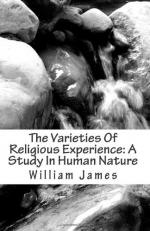|
This section contains 929 words (approx. 3 pages at 400 words per page) |

|
James's Contemporaries
Alfred Adler (1870-1937), an Austrian psychiatrist, began his studies with Sigmund Freud but eventually disagreed with Freud's emphasis on sexual trauma as the main source of mental disorders and parted ways with him. Adler's main theory was that people should be studied as a whole, as beings who spend their lives reacting to the environment, rather than as a summation of their drives and emotions. In respect to religion, he contended that human belief in a God was one way of aspiring toward perfection. His theories were expounded in his book Neurotic Constitution (1912).
Sigmund Freud (1856-1939), also an Austrian psychiatrist, is often called the father of psychoanalysis. His research on the unconscious still affects the study of psychology in the twenty-first century. His basic tenet was that people experience conflicts between what they desire and what are the confines of their societal customs. The development of...
|
This section contains 929 words (approx. 3 pages at 400 words per page) |

|




